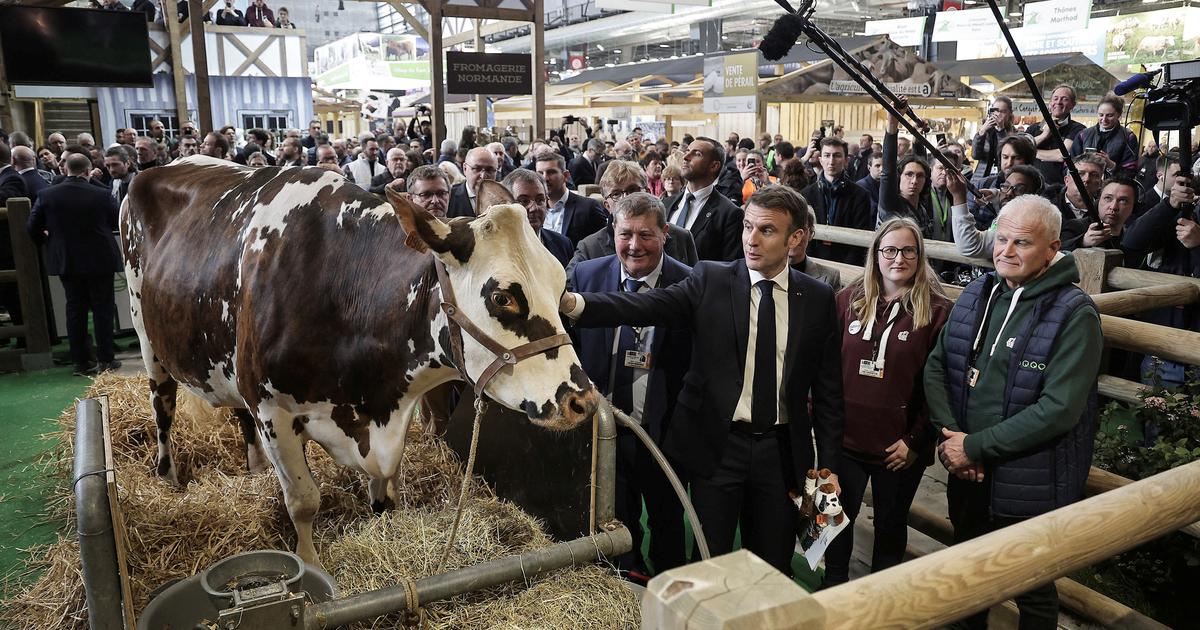Nicolas-Jean Brehon is honorary advisor to the Senate.
To discover
PODCAST - Listen to the club Le Club Le Figaro Idées with Eugénie Bastié
The floor price, in open agriculture, does not work.
The Common Agricultural Policy (CAP) has long operated with administered prices.
For a large number of products, the European Economic Community (EEC) set objective, indicative prices, but also floor prices.
It thus fixed a minimum (threshold) price for imports, and a buy-back (intervention) price for products which were not sold and which the EEC bought back or stored while waiting to resell them.
A good minister was then a minister who brought in good prices.
The CAP operated like this for thirty years.
It even succeeded perfectly, until we realized that European prices had become completely out of sync with world prices and that buybacks were very expensive.
Everything was reformed in 1992. Intervention prices have almost disappeared or are now set at such a derisory level that they are no longer useful.
Prices administered at European Union level no longer exist.
But the idea of floor prices periodically resurfaces in times of agricultural crisis.
The last attempt was that of 2015 at the time of the crisis in the pork industry.
The Russian market had just closed, German production was beginning to take off and the price of pork was falling, below the cost price.
Going from €1.90 to €1.30 per kg in a few months.
Many breeders were on the verge of bankruptcy.
The very natural idea was to set a minimum price: €1.40 per kilo, the average production price used by the professional sector.
There was then a great period of excitement.
With a political background.
Read alsoThe government and farmers challenged to solve the puzzle of floor prices
In July 2015, the Senate took the initiative of organizing the first round table bringing together producers, unions, manufacturers and bosses of large stores.
After five hours, the parties agreed that an agreement could be reached on this price of €1.40.
A political victory for the right and the president of the Senate, very involved on this subject.
At the same time, the Senate acted on the European Commission by asking it to activate intervention (production buybacks) and food aid.
The following week, the minister - Mr. Le Foll -, quite irritated at having been overtaken, carried out the same operation and this time reached a firm and definitive agreement: €1.40.
End of the first round.
For a month, trading on the clock (the Breton pork market) was at €1.40.
But in August, the two big buyers in the sector (Bigard and Cooperl) withdrew from the market.
They don't buy anymore.
30,000 pigs remain on the arms of breeders, in production.
Pigs gain weight, lose value.
At €1.40, this no longer works, especially internationally.
Because the pork market is segmented.
Not everyone buys the same pieces.
There are the noble parts, sold in butcher shops, the common parts used in cooked dishes, and the fifth quarter, that is to say the feet, the offal and the fat.
Parts that are very little valued but which have international outlets.
Parts that represent large volumes and storage facilities, whose storage cost is high.
Selling the Fifth Quarter is a commercial and technical imperative.
It is also a big financial issue because, if prices are very low, the sale can represent 2 or 3% of turnover.
That is to say the margin.
In other words, no fat, no profit.
The more open a sector is internationally, the less relevant the idea of a floor price is.
Nicolas-Jean Brehon
The international Fifth Quarter market is very aggressive, as the saying goes.
It's not about quality, image, labeling with little flags or animal welfare... It's all about prices.
And in this game, the Germans are unbeatable.
Because in addition to their massive production, the Germans have the most efficient slaughter costs in Europe by using Polish labor.
Certainly, the 1996 regulations for posted workers require foreign employees to be paid under the legal conditions of the host country.
But there is no minimum wage in Germany and the salary level of Polish workers allows for very competitive costs.
The French no longer sell.
At €1.40 in France, it doesn't work internationally.
Transformation professionals ask for 5 cents less.
A month passes.
In September 2015, the federation of Breton breeders in turn withdrew from the Breton pork market of Plérin (Côtes-d'Armor) which serves as a reference at the national level.
She therefore renounces the floor price, although requested for months.
End of the second round.
What conclusions should we draw?
The first is economic.
The more open a sector is internationally, the less relevant the idea of a floor price is.
A floor price is possible for products that are relatively little traded.
Fruits and vegetables for example.
Even if the Commission, guardian of competition law, sanctioned endivators for having set a minimum selling price for chicory... It is not the size of the market that counts, it is its degree of openness to international.
Competition is essential.
The second is political.
That this idea was put forward by a former - and good - minister of agriculture is incomprehensible.
How can we not also mention the role and composition of the teams surrounding the Head of State.
In this type of situation, the profile of these young thirty-somethings, undoubtedly educated and brilliant but without the slightest political sense and without any experience, is dramatic.
This is true in agriculture as in a large number of other sectors, in France and internationally.
Everyone who has worked with the presidency says so.
And it is not an old honorary advisor to the Senate - a modest grenadier of the 2015 pork battle - who will contradict him.

